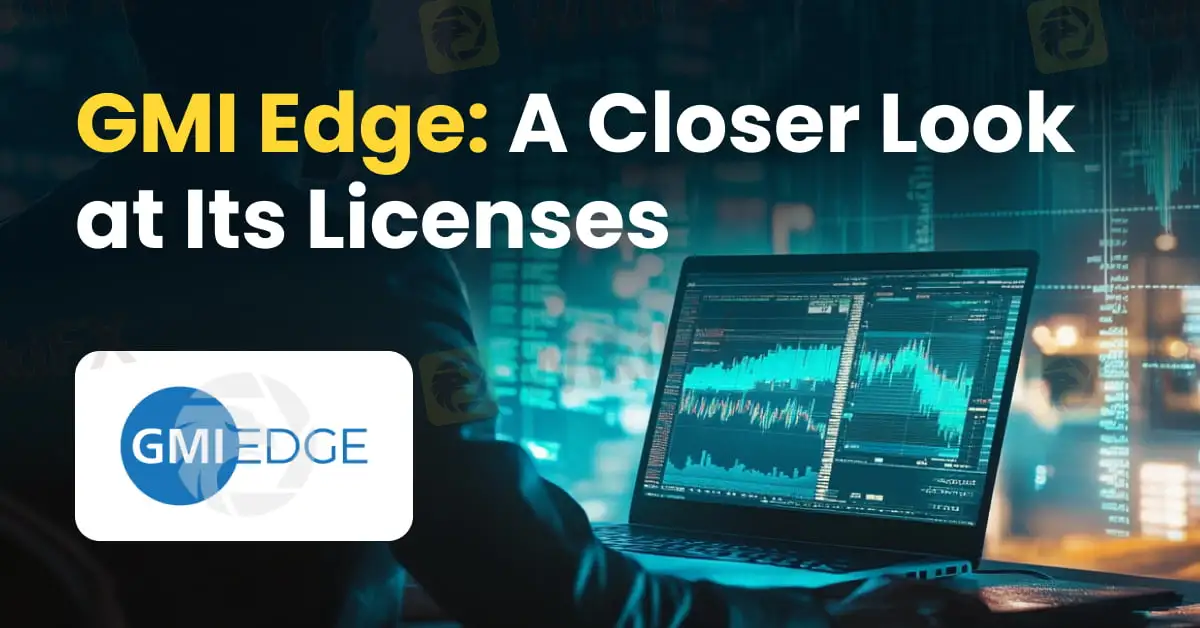简体中文
繁體中文
English
Pусский
日本語
ภาษาไทย
Tiếng Việt
Bahasa Indonesia
Español
हिन्दी
Filippiiniläinen
Français
Deutsch
Português
Türkçe
한국어
العربية
GMI Edge: A Closer Look at Its Licenses
Abstract:In the world of online trading, regulatory oversight plays a critical role in protecting investors and ensuring market integrity. Brokers operating without clear and verifiable regulation often pose heightened risks to traders. GMI Edge is one such broker that, according to available information, raises several red flags regarding its licensing and operational transparency.

GMI Edge is registered in Vanuatu, a well-known offshore jurisdiction with comparatively relaxed financial regulatory standards. GMI Edge claims to hold a retail forex license under the Vanuatu Financial Services Commission (VFSC) with license number 14647. However, WikiFX, an international broker regulatory query platform, has marked the license status as unverified. This means there is insufficient evidence confirming the broker‘s compliance with VFSC’s regulatory standards or active supervision by the authority.

Moreover, GMI Edge has been flagged by the Securities Commission Malaysia, a formal financial regulator, indicating that the broker has been disclosed as potentially risky. This disclosure is a serious signal to investors, especially those based in or operating from Southeast Asia, to proceed with caution.

Most notably, WikiFX confirms that GMI Edge currently holds no valid regulation from any major financial regulatory body. This absence of recognized regulatory oversight raises concerns about the broker's ability or willingness to follow industry standards around client fund security, withdrawal practices, dispute resolution, and transparency.

Further amplifying these concerns is the brokers WikiScore of 1.56 out of 10, based on a comprehensive evaluation of regulatory status, operational transparency, platform functionality, risk controls, and user feedback. A score this low suggests that traders may face increased risk when using this platform, from limited recourse in the event of disputes to potential issues with fund withdrawal.

In todays trading landscape, offshore registration without a valid regulatory license from a recognized authority can be a warning sign. Although some offshore brokers operate fairly, the lack of strong oversight can create opportunities for misconduct, poor client service, or financial unreliability.
Traders are strongly advised to exercise caution when dealing with unregulated or offshore-registered brokers. While offers and platforms may appear legitimate, the absence of enforceable regulatory standards significantly weakens investor protections.
Before engaging with any broker, checking their regulatory credentials through resources like WikiFX can help investors make more informed decisions.

Disclaimer:
The views in this article only represent the author's personal views, and do not constitute investment advice on this platform. This platform does not guarantee the accuracy, completeness and timeliness of the information in the article, and will not be liable for any loss caused by the use of or reliance on the information in the article.
Read more

XTB Hack 2025: Major Security Breach Exposes Client Accounts
XTB suffers a major hack in 2025, with hackers draining client accounts and sparking urgent security upgrades. Learn how the breach unfolded and what’s next.

XTB Hack 2025: Major Security Breach Exposes Client Accounts
XTB suffers a major hack in 2025, with hackers draining client accounts and sparking urgent security upgrades. Learn how the breach unfolded and what’s next.

Risk Involved with Cabana Capital – Every Trader Should Know
Cabana Capital has changed its name and logo, basically everything about its identity. This seems a bit suspicious, and it's something you should definitely be concerned about. In this article, you’ll learn about the red flags that every trader needs to watch out for.

CME International Records a Massive Jump in Forex Volumes
CME International recorded a record surge in its foreign exchange trading volumes during the second quarter. Check out its performance across products and markets.
WikiFX Broker
Latest News
US Government Interest Grows in Victory Metals’ Rare Earths Supply
How Are Trade Policies Affecting the Aluminum Market?
RM71,000 Lost in a Share Scheme That Never Existed
Scammed by a Click: He Lost RM300,000 in a Month
Manual vs. Automated Forex Trading: Which One Should You Choose?
Revealing Factors That Help Determine the Gold Price in India
Why Regulatory Compliance Is the Secret Ingredient to Trustworthy Forex Brokers
Pentagon to become largest shareholder in rare earth miner MP Materials; shares surge 40%
Delta shares jump 12% after airline reinstates 2025 profit outlook as CEO says bookings stabilized
Delta shares jump 13% after airline reinstates 2025 profit outlook as CEO says bookings stabilized
Currency Calculator


